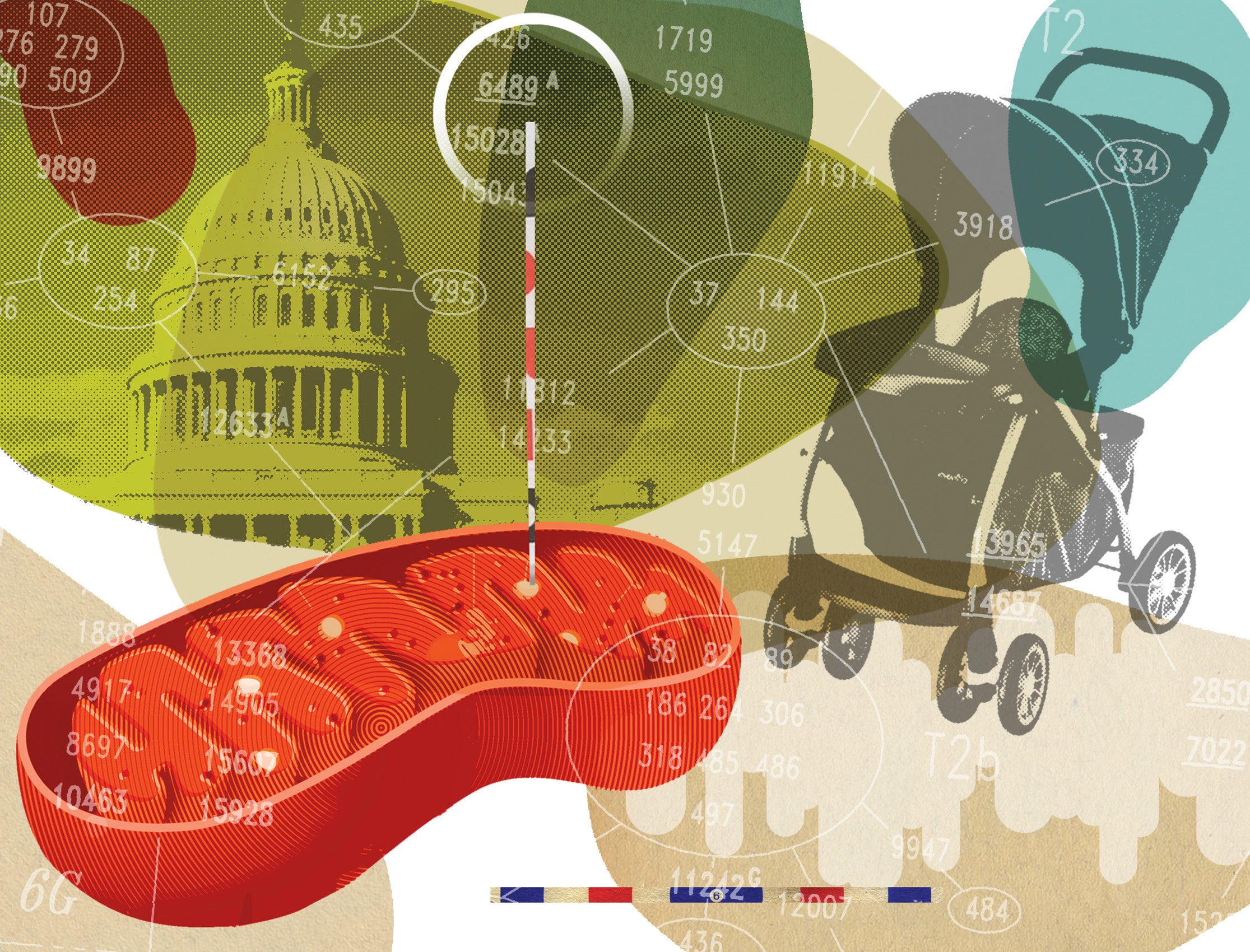Calls are growing for the U.S. to lift a ban on mitochondrial replacement therapy, or MRT, a procedure developed to enable women who are at risk of passing on rare but devastating diseases to have healthy, biologically related children. The procedure involves transferring the mitochondria of an unaffected egg of a donor into the nucleus of an affected egg (mitochondrial diseases are passed down on the mother’s side). In 2015, members of Congress, concerned about gene editing, inserted a policy rider into an appropriations bill that has been interpreted to effectively ban the procedure, and even prohibits research on it. The treatment’s supporters counter that MRT is not gene editing, and that the U.S. should look to the U.K., where the procedure moved into clinical trials two years ago. In April, a group of 35 scientists, lawyers, patient advocates, and bioethicists gathered at Harvard Law School’s Petrie-Flom Center for Health Law Policy, Biotechnology, and Bioethics for the first major meeting held to discuss changing the policy on MRT in the U.S. Recently, The New York Times argued to end the ban, and supported these efforts by the Petrie-Flom Center to bring stakeholders together. Harvard Law Professor I. Glenn Cohen ’03, faculty director of the Petrie-Flom Center, led the event. Here, Cohen offers his perspective on the treatment’s safety, and on ethical and legal considerations.
What was the purpose of the April meeting, and what was its outcome?
It was a dialogue on the current state of MRT research, ethical issues and regulation. We wanted to determine what the current law means, whether it should be changed, and if so, how one might do it. The Petrie-Flom Center and Harvard Law School don’t lobby, but it is possible we will come up with a publication or another way to offer thoughts to Congress. We haven’t yet decided what the next steps should be.

I. Glenn Cohen is one of the leading experts on the intersection of bioethics and the law.
What are the arguments in favor of allowing MRT in the U.S.?
It’s estimated that there are roughly 1,000 U.S. children born every year with mutant mitochondrial DNA disease. The children suffer crippling disabilities their entire lives and have shortened life spans. You’ve also got people who want to reproduce and often don’t know they have a problem until they have a single child who shows evidence of the disease. Their options have essentially been to take a chance and possibly have another child with one of these very crippling disabilities or use a donor egg and donor sperm and have a child that is not genetically related to one of the parents.
Is the procedure safe?
The U.K. has studied this for 13 years. There’s a huge amount of animal preclinical data, and the like, all suggesting safety, but the truth of the matter is that with any new technology, you really never know 110% what the effects will be five generations from now.
What are the ethical considerations?
There is this question about what is going to be passed on to future generations. In the U.S., the National Academies of Sciences, Engineering, and Medicine suggests that MRT be used first for serious diseases, and perhaps limited to male embryos only, to avoid transmitting forward the altered DNA. We’re talking about a small number of people, so I’m not as concerned as I would be if we were talking about millions of people receiving MRT treatment.
Another is whether women who donate mitochondrial DNA ought to be considered mothers in any legal or social sense. In the U.K., mitochondrial DNA donors are not considered mothers in a legal sense. They’re exempt from a requirement that they put their names in a donor registry available to the child at age 18.
Then there are lesbians who want to be parents, and cases where the science will potentially permit both women to be genetic mothers of the child through MRT (one giving nuclear, the other mitochondrial DNA). Should we allow the use of this technology for that? I don’t know what the right answer is. I’m still struggling with it. It’s pretty clear to me that we won’t get to that question until the technology is allowed for mitochondrial diseases. That’s the first step.
Mitochondrial replacement therapy is not gene editing, says Glenn Cohen. It is not about producing “designer babies.”
Critics of this procedure ask why women undergo this experimental treatment when established options such as adoption and in vitro fertilization exist?
We don’t say to the average person, You really should adopt. You were wrong to have a genetic child. So, it seems somewhat unfair and perhaps discriminatory to intercede with this concern about genetic essentialism only in the cases of people who have mitochondrial disease. And IVF plus pre-implantation genetic diagnosis is not a solution for MRT the way it is for some other genetic diseases.
What do you think are some of the biggest misconceptions U.S. policymakers have about MRT?
Mitochondria replacement is quite different from gene editing. What comes to mind is that we’re making “designer babies” or we’re going to be making them super smart and super tall and beautiful. This is really taking one part of the entire DNA that is diseased and replacing it with another woman’s mitochondrial DNA, in a way that does not have these effects on traits.
Another misconception is that this is part of the abortion debate. The goal is not the ending of life. The goal is to enable parents to have children without serious, debilitating, and life-threatening diseases, and in my mind, that is entirely consistent with the pro-life ideology in America.
Why do you believe the U.S. has not approved MRT?
A congressional appropriations bill passed several years ago included a rider aimed at prohibiting gene editing. But the language was quite broad and probably unintentionally has been read to also prevent MRT. Despite some ambiguity in the language, the FDA has read this language as preventing it from even considering an application to use MRT in the U.S.
What has been the ban’s impact?
There are people in the U.S. who could benefit from this technology who don’t get the benefit. We’re basically telling our people: Do it abroad, do it in silence, do it in the shadows. And to me, that puts those people, but also the whole enterprise, into a dubious posture. Those people should not be treated like outlaws. It would be much better if we could establish a process to do this in the light of day here in the U.S. with the best experts, with data being collected and with the highest ethical protections.
How do you think this will play out in Congress?
I’m hopeful. This is the kind of issue where there might be an opportunity at the current moment to change things. This is not gene editing. This is not abortion. This is not “designer babies.” I’m actually hopeful that people could at least live with this, especially when they’re faced with the reality of parents who want to have children who are genetically related to themselves but want to avoid their children suffering from serious diseases. MRT can enable that.
